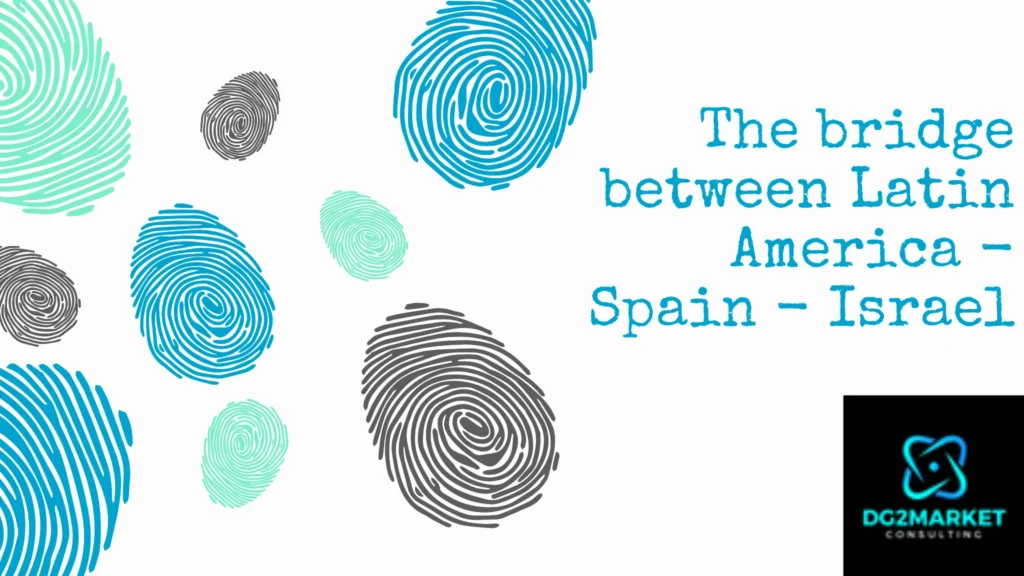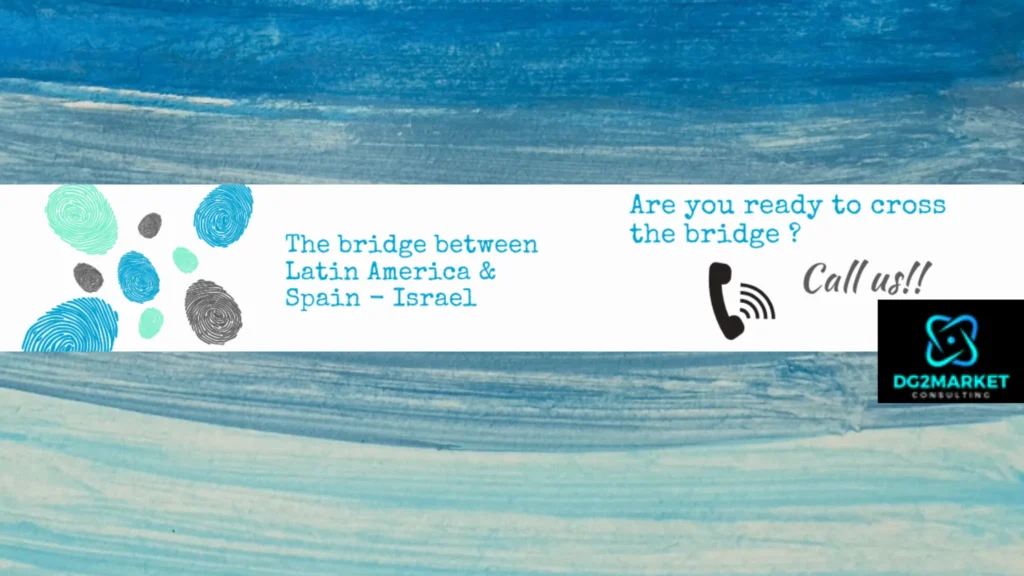Israel-Latin America Relations: Cultural & Economic Engagement – Gain insight into the dynamic interactions between Israel and Latin American countries. This in-depth analysis examines diplomatic efforts, economic cooperation, and humanitarian aid. Understand the shared interests and diverse contributions that characterize this significant geopolitical relationship.
-
Israel's Role in Latin American Countries (1950-1980)
-
- Early Diplomatic Support (1950s-1960s)
- Flourishing Relations and Cooperation
- Shifting Dynamics and Growing Tensions (1970s)
- Arms Sales and Controversies
- Changing Stances in International Forums
- Trade and Economic Relations - Cultural & Economic Engagement
- Conclusion - The Challenge in Cultural & Economic Engagement
-
-
Israel Meets LATAM: A New Era of Cultural & Economic Engagement
- A Polarized Diplomatic Landscape
- Argentina Leads the Pro-Israel Shift
- Paraguay and Guatemala Strengthen Ties
- Central America: Quiet Continuity and Strategic Alignment
- Opportunities and Outlook
- Conclusion
- Israeli Embassies in Latin America - Cultural and Economic Engagement
- Important Information for Travelers to Israel: ETA-IL Requirement
- Countries Facts -
- Cultural and Economic Engagement
- Sources & Credits
Based on the information available, Israel maintains diplomatic missions in several countries in Latin America. These missions are typically embassies, the highest-ranking diplomatic representations in a foreign country. Here is a list of countries in Latin America with Israeli embassies.
Israel’s Role in Latin American Countries (1950-1980)
Israel’s relationship with Latin American countries (Cultural and Economic Engagement) from 1950 to 1980 was multifaceted, evolving from initial strong diplomatic support to a more complex dynamic influenced by the Cold War, regional political shifts, and the Arab-Israeli conflict.
Early Diplomatic Support (1950s-1960s)
In the early years following Israel’s establishment in 1948, many Latin American nations, particularly democratic and liberal regimes, displayed significant support for the nascent Jewish state.
This was evident in their voting patterns at the United Nations, where a majority favored the 1947 Partition Plan and Israel’s admission to the UN in 1949. Countries like Guatemala were among the first to recognize Israel, and by the early 1950s, most Latin American nations had established diplomatic ties.
Flourishing Relations and Cooperation
The 1960s marked a period of flourishing relations, primarily driven by Israel’s successful agricultural aid programs and technical assistance initiatives in cooperative organization, medicine, and rural development. Thousands of Latin American trainees participated in study programs in Israel, fostering goodwill and strengthening bilateral ties.
This period witnessed a significant increase in Latin American embassies established in Israel, with a notable concentration in Jerusalem. At the same time, Israel reciprocated with a growing diplomatic presence across the continent.
International forums also reflected this alignment, where most Latin American countries consistently supported Israel’s positions.
Shifting Dynamics and Growing Tensions (1970s)
However, the 1970s witnessed a gradual deterioration of these once-cordial relations. Several factors contributed to this shift. The rise of left-wing military regimes in countries such as Peru, the Allende government in Chile, and the resurgence of Peronism in Argentina led to different ideological perspectives.
The emergence of new Caribbean states with closer ties to Africa and Third World ideologies further contributed to a growing alignment with anti-Israeli policies within international organizations. The 1973 Yom Kippur War and its aftermath also significantly altered perceptions and allegiances.
Arms Sales and Controversies
Furthermore, Israel’s growing involvement in arms sales to some of the right-wing military dictatorships in Latin America during this period cast a shadow over its image. While these sales provided Israel with economic benefits and strategic alliances, they were viewed unfavorably by progressive and liberal political actors within Latin American societies who opposed these repressive regimes.
The provision of military training and equipment to forces involved in human rights abuses, as documented in countries like El Salvador and Guatemala, generated criticism and complicated diplomatic ties.
Changing Stances in International Forums
The changing dynamics were also evident in the United Nations. The 1975 UN resolution equating Zionism with racism saw support from several Latin American and Caribbean states, signaling a departure from the earlier unwavering support. By the 1980s, some influential nations, such as Mexico, and to a lesser extent Argentina, Brazil, and Peru, routinely supported anti-Israeli resolutions.
A significant symbolic setback occurred in 1980 when Israel declared Jerusalem its capital, leading to a UN Security Council resolution calling for the relocation of diplomatic missions. Consequently, all twelve Latin American embassies in Jerusalem were moved to Tel Aviv.
Trade and Economic Relations – Cultural & Economic Engagement
Despite the political shifts and controversies, trade relations between Israel and Latin America remained relatively minor. While Israeli exports to the region saw some growth, they were not a primary economic driver for either side.
The relationship’s focus, particularly in the latter part of the period, became increasingly intertwined with geopolitical considerations and, controversially, military cooperation with specific regimes.
Conclusion – The Challenge in Cultural & Economic Engagement
In conclusion, Israel’s role in Latin America between 1950 and 1980 underwent significant evolution. The initial strong diplomatic support rooted in shared ideals of nation-building and development gradually led to a more complex and strained relationship.
The rise of new political ideologies in Latin America, the influence of the Arab-Israeli conflict, and Israel’s involvement in arms sales to authoritarian regimes contributed to a decline in unwavering support and a greater alignment of some Latin American nations with anti-Israeli stances in the international arena.
However, diplomatic relations were maintained by the end of the decade, albeit on a more cautious and nuanced basis. (See Israeli Embassies in Latin America)
Israel Meets LATAM: A New Era of Cultural & Economic Engagement
In the aftermath of the Hamas-led attacks on October 7, 2023, the relationship between Israel and Latin America entered a complex and transformative phase. While some governments distanced themselves from Israel diplomatically, others intensified cooperation, signaling a new era of Cultural & Economic Engagement across the region.
A Polarized Diplomatic Landscape
Several Latin American nations—most notably Colombia, Bolivia, and Nicaragua—took strong stances in response to the ongoing conflict in Gaza. These countries either severed diplomatic ties or recalled their ambassadors, citing humanitarian concerns and aligning themselves with a bloc critical of Israel’s military actions.
However, this geopolitical rift has also given rise to a countercurrent. A coalition of countries governed by right-leaning or conservative leadership has chosen a markedly different path—embracing deeper ties with Israel and positioning themselves as strategic allies in both political and economic spheres.
Argentina Leads the Pro-Israel Shift
Under President Javier Milei, Argentina has emerged as a leading voice in support of Israel. After visiting Israel in early 2024, Milei not only pledged to relocate Argentina’s embassy to Jerusalem but also reaffirmed his unwavering support for Israel’s right to self-defense. His outspoken solidarity was recognized internationally when, in June 2025, he received the Genesis Prize, often dubbed the “Jewish Nobel.”
Rather than keeping the prize money, Milei announced it would fund a regional initiative focused on promoting Cultural & Economic Engagement between Latin American nations and Israel. The project aims to replicate the spirit of the Abraham Accords, fostering normalization, interfaith dialogue, and regional cooperation while combatting antisemitism across Latin America.
Paraguay and Guatemala Strengthen Ties
In a rare diplomatic win for Israel during the Gaza war, Paraguay reinstated its embassy in Jerusalem in December 2024. President Santiago Peña emphasized the historic and strategic significance of the move, reinforcing Paraguay’s long-standing ties with Israel and positioning his country as a bridge for regional dialogue.
Similarly, Guatemala continued its close relationship with Israel by signing a free trade agreement in early 2024. This milestone solidified bilateral economic cooperation, opened new export opportunities, and laid the foundation for increased Cultural & Economic Engagement through innovation, agriculture, and technology exchange.
Central America: Quiet Continuity and Strategic Alignment
Other Central American nations, including Panama and El Salvador, have maintained warm relations with Israel, marked by shared values in democracy, development, and national security. These countries have consistently supported Israel in international forums and continue to engage in trade, defense cooperation, and cultural exchanges.
In El Salvador, President Nayib Bukele—who is of Palestinian descent—has maintained a balanced yet respectful diplomatic approach, reaffirming ties with both Israeli and Arab communities while promoting national unity and modernization.
Opportunities and Outlook
Despite the diplomatic fractures elsewhere in the region, these pro-engagement countries reflect a broader trend: the growing realization that collaboration with Israel can yield tangible benefits in science, technology, defense, and agriculture. In a world increasingly shaped by innovation, Israel’s expertise—particularly in areas such as water conservation, agri-tech, and cybersecurity—is highly attractive to Latin American governments seeking rapid development solutions.
Moreover, public diplomacy, cultural exchanges, and educational cooperation are expanding. Student exchange programs, interfaith initiatives, and tech partnerships are enriching people-to-people relationships and building lasting bridges rooted in Cultural & Economic Engagement.
Conclusion
While Latin America’s diplomatic stance toward Israel remains divided, a powerful undercurrent of strategic realignment is redefining the region’s future. Countries like Argentina, Paraguay, and Guatemala are spearheading a new chapter of cultural and economic engagement, one that transcends political ideologies and focuses on mutual opportunities, shared values, and regional transformation. As this new era unfolds, it is clear that Israel’s role in Latin America is not diminishing—but evolving.
Israeli Embassies in Latin America - Cultural and Economic Engagement |
||||
| Country | Address | Phone | web | |
| Uruguay | Dr. Luis Bonavita 1266 11300 Montevideo |
598-2-6288733 | info@montevideo.mfa.gov.il | https://new.embassies.gov.il/uruguay/en |
| El Salvador | Edificio Centro Colon, P.º Colón 38 Avenida 0 San José |
506-22216444 | info@sanjose.mfa.gov.il | https://new.embassies.gov.il/costarica/en |
| Ecuador | Avenida La Coruna E25-58 Y San Ignacio, Altana Plaza , Piso 5, Quito - Ecuador | 593-2-3971500 | info@quito.mfa.gov.il | https://new.embassies.gov.il/ecuador/en |
| Argentina | Avenida De Mayo 701 Piso 10, Buenos Aires, Argentina 1084 | 54-11-37244500 | info@buenosaires.mfa.gov.il | https://new.embassies.gov.il/argentina/en |
| Brazil - Brazilia | S.E.S Av. Das-Nacoes Lote 38, Q 809, Brasilia CEP 70424900 | 55-11-21270500 | info@brasilia.mfa.gov.il | https://new.embassies.gov.il/brazil/en |
| Guatemala | 13 Avenida 14-07, Zona 10, Guatemala-City | 502-23635665 | consular1@guatemala.mfa.gov.il | https://new.embassies.gov.il/guatemala/en |
| Republica Dominicana | Avenida Pedro Henriquez Urena 80, La Esperilla El Vergel, Santo Domingo 10107 | 1-809-9201500 | info@santodomingo.mfa.gov.il | https://new.embassies.gov.il/dominican-republic/en |
| Honduras | Torre Agalta 4R29+7G9, Blvd. Morazán Tegucigalpa |
+504 2262-1005 | consular1@tegucigalpa.mfa.gov.il | https://new.embassies.gov.il/honduras/en |
| Mexico | Sierra Madre No. 215, Lomas De Chapultepec, 11000, Mexico D.F, Mexico City | 52-55-52011500 | press@mexico.mfa.gov.il | https://new.embassies.gov.il/mexico/en |
| Peru | Andres Reyes 437, San Isidro, Centro Empresarial Platinum Plaza 2, Piso 13, Lima, Peru | 51-1-4180500 | info@lima.mfa.gov.il | https://new.embassies.gov.il/peru/en |
| Panama | Edificio P.H Torre Del Banco General, Piso 17, Panama City, Panama | 507-2084700 | info@panama.mfa.gov.il | https://new.embassies.gov.il/panama/en |
| Chile | Alonso de Córdova 5320 7560809 Las Condes Región Metropolitana |
56-22-7500500 | info@santiago.mfa.gov.il | https://new.embassies.gov.il/chile/en |
| Colombia | Ac. 26 #57-83 Bogotá, Colombia |
57-1-3277500 | info@bogota.mfa.gov.il | https://new.embassies.gov.il/colombia/en |
| Costa Rica | Edificio Centro Colon, Paseo Colon, Calle 38, San Jose | 506-22216444 | info@sanjose.mfa.gov.il | https://new.embassies.gov.il/costarica/en |
| Santo Domingo | Av. José Núñez de Cáceres 11 Santo Domingo 10114 |
00-1-809-9201500 | info@santodomingo.mfa.gov.il | https://new.embassies.gov.il/dominican-republic/en |
| Antigua – Barbuda (See Santa Domingo) | ||||
| Bahamas (See Mexico) | ||||
| Bolivia (see Peru) | ||||
| Paraguay (See Argentina) | ||||
Important Information for Travelers to Israel: ETA-IL Requirement
Last updated on: 07/04/2025
Please be informed that, according to the information received by the Population and
Immigration Authority (PIBA), as of the 1st of January 2025, nationals of visa-exempt countries
must have an ETA-IL approval before their flight to Israel.
Important Information for Travelers to Israel: ETA-IL Requirement
The Population and Immigration Authority (PIBA) announces that, starting January 1, 2025, nationals of visa-exempt countries are required to have an approved ETA-IL (Electronic Travel Authorization) before departure for Israel.
Countries Facts –
Cultural and Economic Engagement
| Country | Population (2025 est.) | Predominant Religion | Main Export Commodity |
|---|---|---|---|
| Argentina | 47,067,441 | Christianity (78.2%), predominantly Catholic (62.9%) | Soybeans |
| Bolivia | 12,224,110 | Christianity (95.3%), predominantly Catholic (73.7%) | Natural Gas |
| Brazil | 212,812,405 | Christianity (86.8%), predominantly Catholic (64.6%) | Soybeans |
| Chile | 19,458,310 | Christianity (76.0%), predominantly Catholic (60.0%) | Copper |
| Colombia | 53,425,635 | Christianity (93.9%), predominantly Catholic (80.3%) | Crude Petroleum |
| Costa Rica | 5,212,000 | Christianity (84.3%), predominantly Catholic (70.5%) | Medical Instruments |
| Cuba | 11,113,215 | Christianity (59.2%), predominantly Catholic (60.0%) | Rolled Tobacco |
| Dominican Republic | 11,532,151 | Christianity (74.6%), predominantly Catholic (52.5%) | Gold |
| Ecuador | 18,000,000 | Christianity (95.6%), predominantly Catholic (87.8%) | Crude Petroleum |
| El Salvador | 6,500,000 | Christianity (75.5%), predominantly Catholic (45.8%) | Clothing |
| Guatemala | 18,000,000 | Christianity (79.3%), predominantly Catholic (47.6%) | Bananas |
| Honduras | 10,000,000 | Christianity (83.0%), predominantly Catholic (47.9%) | Clothing |
| Mexico | 131,946,900 | Christianity (92.2%), predominantly Catholic (82.7%) | Cars |
| Nicaragua | 7,000,000 | Christianity (81.1%), predominantly Catholic (54.3%) | Gold |
| Panama | 4,500,000 | Christianity (90.0%), predominantly Catholic (75.0%) | Bananas |
| Paraguay | 7,500,000 | Christianity (96.8%), predominantly Catholic (90.4%) | Electricity |
| Peru | 33,000,000 | Christianity (96.7%), predominantly Catholic (81.3%) | Copper |
| Uruguay | 3,500,000 | Christianity (58.2%), predominantly Catholic (47.1%) | Beef |
| Venezuela | 30,518,260 | Christianity (92.6%), predominantly Catholic (80.5%) | Crude Petroleum |





It’s important to remember that the information can change. Always best to check the official embassy website for the most up-to-date details on locations, contact info, and visa requirements
Thanks for sharing this important resource! It’s always good to have quick access to embassy information and stay updated on any changes, especially when planning travel or assisting loved ones abroad. 👍